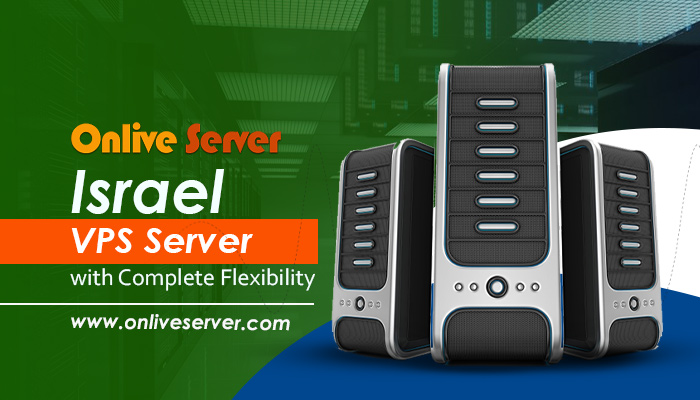In today’s digital age, having a reliable and high-performing server is crucial for businesses and individuals. A Managed Virtual Private Server (VPS) offers a powerful hosting solution, but you need to optimize it for maximum performance to harness its true potential. In this article, we will explore the best practices to enhance the speed, security, and efficiency of your Managed VPS Server.
To optimize your Managed VPS Server for maximum performance, you must carefully configure and fine-tune various aspects of the server environment. Start by optimizing resource allocation, ensuring CPU, RAM, and storage are allocated efficiently to your applications. Utilize a content delivery network (CDN) to reduce latency and improve website loading times. Implement caching mechanisms, such as encode and object caching, to speed up data retrieval. Regularly update and patch your server’s software to enhance security and performance. Monitor server metrics and use tools like load balancers to distribute traffic evenly. Collectively, these measures improve the overall performance and reliability of your VPS server.
Understanding Managed VPS Server
In a Managed VPS Server:
- Server Management: The hosting provider takes care of the technical aspects of server management. This includes setting up the server, installing software, configuring security, and handling updates.
- Monitoring: They keep an eye on your server’s performance, making sure it’s running smoothly. If there are issues, they proactively address them.
- Backups: Regular backups of your data are taken and stored securely. In case something goes wrong, you can restore your website or data.
- Security: The provider implements security measures to protect your server from cyber threats. This can include firewall setups, intrusion detection, and malware scanning.
- Technical Support: If you have any technical questions or encounter problems with your server, contact their support team for assistance.
- Software Updates: They manage the installation of software updates and patches to keep your server secure and up-to-date.
Choose the Right Hosting Provider
Selecting the right hosting provider is crucial. Look for a reputable company that offers Managed VPS services with a proven track record of reliability and excellent customer support. A reliable provider ensures minimal downtime and high server availability.
Keep Software Updated: Regularly updating your server’s software, including the operating system and applications, is essential for security and performance. Outdated software can be vulnerable to security threats and may slow down your server.
Optimize Server Resources: Your Managed VPS Server has allocated resources, such as RAM and storage. Ensure that these resources are allocated efficiently to meet your website’s demands. You can adjust resource allocations based on your specific needs.
Implement Caching: Utilize server-side caching mechanisms like Varnish or implement application-level caching with tools like Redis or Memcached.
Content Delivery Network (CDN)
Integrate a Content Delivery Network (CDN) with your Managed VPS Server to distribute website content globally. CDNs reduce latency and deliver content faster to users by serving it from geographically closer locations.
Monitor Server Performance: Regularly monitor your server’s performance using tools like New Relic or Prometheus.
Security Measures: Enhance the security of your Managed VPS Server by implementing firewalls, intrusion detection systems, and regular security audits. A secure server not only protects your data but also ensures optimal performance.
Backup and Disaster Recovery
Always have a robust backup and disaster recovery plan in place. Regularly back up your data to prevent loss and ensure your server can quickly recover from unexpected failures.
Load Balancing: If your website experiences high traffic, consider implementing load balancing to distribute incoming requests across multiple servers. This prevents overload and ensures consistent performance.
Scalability: Choose a Managed VPS Server plan that allows for scalability. As your website grows, you should easily upgrade your resources to accommodate increased traffic and demands.
Conclusion
A VPS server offers a cost-effective and flexible solution for hosting websites, applications, and other online services. It provides the advantages of dedicated resources and control without the high costs associated with a physical server. VPS hosting is suitable for businesses of all sizes, offering scalability, security, and customization options. However, choosing a VPS provider and server configuration should be carefully considered to ensure optimal performance and reliability for your specific needs. Optimizing your Linux VPS Server for maximum performance is crucial for delivering a seamless user experience and improving search engine rankings. By following these best practices, you can ensure that your server runs efficiently, securely, and at its full potential.
FAQs
What is a Managed VPS Server?
A Managed VPS Server is a virtualized server with dedicated resources, offering more control and flexibility than shared hosting.
How often should I update my server’s software?
It’s recommended to regularly update your server’s software to ensure security and optimal performance. Check for updates at least once a month.
Why is server monitoring critical?
Server monitoring helps promptly identify and address performance issues, ensuring smooth server operation and user experience.
How can I enhance server security?
You can enhance server security by implementing firewalls, intrusion detection systems, and regular security audits to protect your data and maintain optimal performance.







